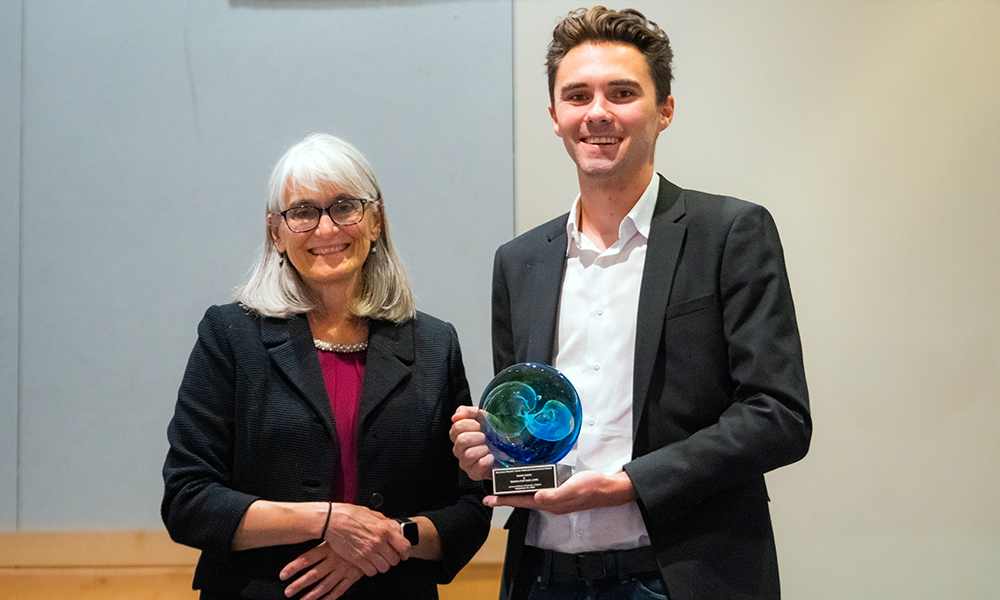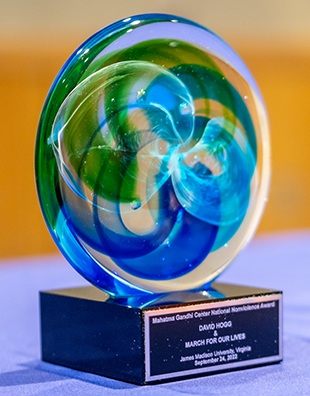Growing with the Mahatma Gandhi Center for Global Nonviolence
News
SUMMARY: The Mahatma Gandhi Center for Global Nonviolence is home to the Beitzel Symposium and Beitzel Memorial Scholarship, honoring their late director Terry Beitzel through scholarship and research, and recently awarded David Hogg, graduate of Marjory Stoneman Douglas High School, and the organization March For Our Lives, with the second-ever National Nonviolence Award.
The Mahatma Gandhi Center for Global Nonviolence, established in 2005, is a local and global hub dedicated to advancing the understanding of justice and nonviolence through individual and collaborative endeavors. The current director, Dr. Taimi Castle, Professor of Justice Studies, succeeded the late Terry Beitzel in 2021.
“My primary goal with the Gandhi Center has been to continue the partnerships and programs that Terry developed while also expanding the research initiatives,” Castle says. “We are interested in collaborating on research with faculty across the university in the broad areas of justice and nonviolence.”
 The Beitzel Symposium, created in honor of the late director, was first held this past September. The three-day event brought distinguished scholars and practitioners of nonviolence to campus for public lectures, seminars, panel discussions and more. During the symposium, the second-ever Mahatma Gandhi Center National Nonviolence Award was given to David Hogg, graduate of Marjory Stoneman Douglas High School, and the organization March For Our Lives, to recognize their commitment to education, civic engagement and nonviolent direct action against gun violence.
The Beitzel Symposium, created in honor of the late director, was first held this past September. The three-day event brought distinguished scholars and practitioners of nonviolence to campus for public lectures, seminars, panel discussions and more. During the symposium, the second-ever Mahatma Gandhi Center National Nonviolence Award was given to David Hogg, graduate of Marjory Stoneman Douglas High School, and the organization March For Our Lives, to recognize their commitment to education, civic engagement and nonviolent direct action against gun violence.
The center also sponsors the Beitzel Memorial Scholarship. Recipients are first-generation Justice Studies students who demonstrate a strong interest in nonviolence and social justice through a commitment to service or research.
Home to the International Journal on Responsibility (IJR), a peer-reviewed, interdisciplinary forum for theoretical, practical and methodological explorations of responsibility, the center is a frontrunner in its field. Animated by the question “Who or what is responsible to do what for whom?", IJR encourages research and reporting about how responsibility relates to both individual and broad, public concerns, past, present and future.
The center is currently accepting applications for a research fellowship in the Justice and Nonviolence Research lab to bolster JMU’s research mission and R2 status by supporting scholarship that leads to publication.
